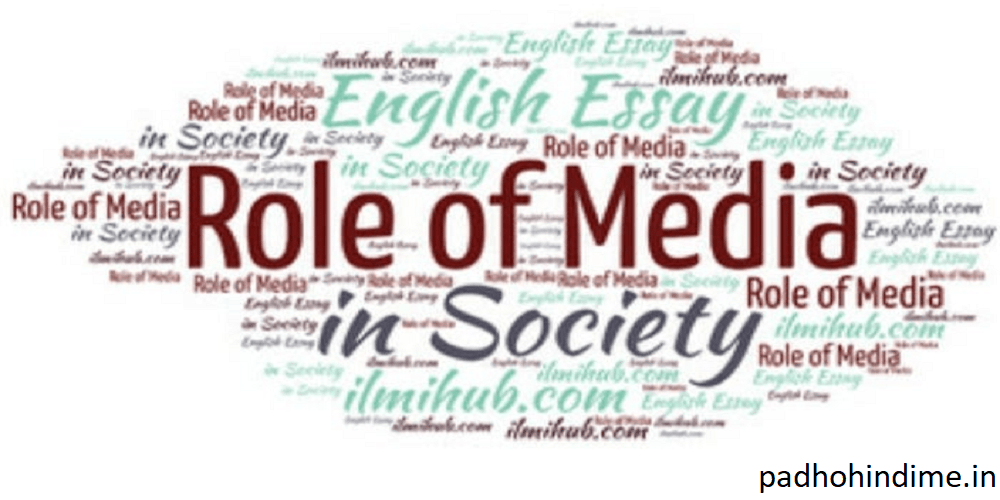Role Of Media In Society.
Media plays a crucial role in shaping and influencing society. It serves as a bridge between individuals, communities, and the world around them. Through various forms of communication, such as print, broadcast, and digital media, it informs, educates, entertains, and empowers people. In this essay, we will explore the multifaceted role of media in society, highlighting its impact on information dissemination, democratic processes, social change, and cultural development.
Firstly, media serves as a vital source of information for individuals and communities. It plays a crucial role in providing news and current affairs, helping people stay informed about local, national, and international events. Journalism, whether through newspapers, television, radio, or online platforms, delivers news that is essential for public knowledge and understanding. By reporting on issues objectively, media ensures transparency, accountability, and the exchange of ideas in a democratic society. It acts as a watchdog, holding governments, institutions, and individuals accountable for their actions, and serves as a platform for public debate and discourse.
Moreover, media plays a pivotal role in democratic processes. It provides a platform for political discourse, enabling citizens to participate in decision-making and shaping public opinion. Media acts as an intermediary between the government and the public, facilitating the flow of information, policies, and ideas. It helps citizens make informed choices by providing them with diverse perspectives on political candidates, parties, and policies. In this way, media contributes to the functioning of a democratic society by fostering an informed electorate and promoting transparency in governance.
Media also plays a significant role in social change and activism. It has the power to raise awareness about social, economic, and environmental issues, and mobilize public support for various causes. Through investigative journalism, media exposes corruption, injustice, and societal problems, thereby putting pressure on authorities to take action. It gives a voice to marginalized communities, enabling them to share their experiences, challenges, and aspirations. Media platforms provide space for debates on sensitive topics, promoting dialogue and understanding among diverse groups. By highlighting social issues, media acts as a catalyst for change, shaping public opinion and influencing policy outcomes.
Furthermore, media contributes to cultural development by promoting artistic expression, preserving cultural heritage, and fostering diversity. It showcases literature, music, cinema, and other art forms, promoting creativity and innovation. Media platforms provide space for cultural dialogue, enabling different cultures to interact, understand, and appreciate each other. It helps preserve cultural heritage by documenting and disseminating traditional practices, rituals, and customs. Media also plays a role in shaping popular culture and trends, influencing the values, attitudes, and behavior of society. By showcasing diverse perspectives, media promotes inclusivity and challenges stereotypes, thereby enriching the cultural fabric of society.
However, along with its positive impact, media also faces certain challenges and concerns. The rise of digital media has led to an information overload and the spread of misinformation. The rapid dissemination of unverified news and the proliferation of fake news pose significant threats to the credibility and trustworthiness of media. Additionally, media consolidation and commercialization have led to concerns about media bias and limited diversity of perspectives. The influence of powerful corporations and political interests on media organizations can undermine their independence and objectivity. Ensuring media integrity, ethical standards, and media literacy are essential in addressing these challenges and maintaining the credibility of media in society.
In conclusion, the role of media in society is multifaceted and indispensable. It serves as an information source, a platform for democratic discourse, a catalyst for social change, and a promoter of cultural development. Through its various forms, media informs, educates, entertains, and empowers individuals and communities. It plays a crucial role in shaping public opinion, influencing policy outcomes, and fostering dialogue among diverse groups. However, media also faces challenges such as misinformation and bias, requiring constant vigilance to uphold its integrity and credibility. Recognizing the power and influence of media, it is vital for individuals, policymakers, and society at large to support and promote responsible, ethical, and independent media practices.





Pingback: What Is Internet - Padho Hindi Me